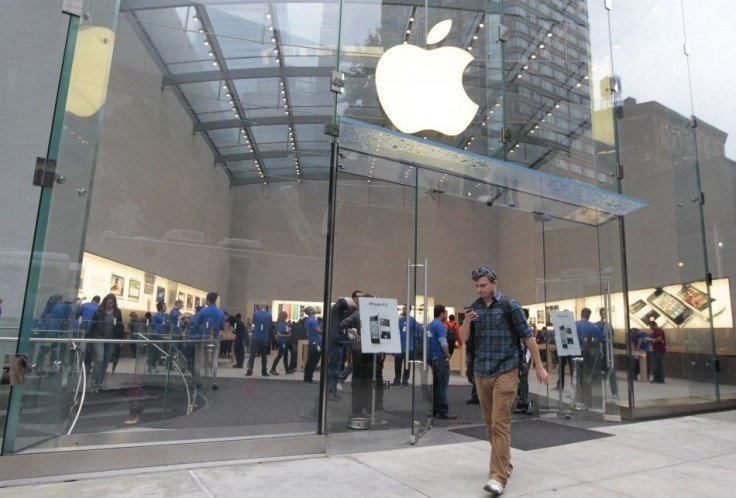Apple Will Face Senators This Week Over Why It Keeps Over $100B In Cash Overseas As Lawmakers Scrutinize Corporate Tax Avoidance Schemes

Top executives at Apple Inc. (Nasdaq:AAPL), including CEO Tim Cook, are scheduled on Tuesday to go before the U.S. Senate’s permanent subcommittee on investigations, which has been reviewing corporate U.S. tax-avoidance strategies that keeps tens of billions of dollars of profit abroad in countries with lower tax burdens.
The subcommittee had previously questioned executives of Hewlett-Packard Co. (NYSE:HPQ) and Microsoft Corp. (Nasdaq:MSFT) over their tax avoidance strategies. Committee member Sen. Carl Levin (D-Mich.) has been particularly vocal on the issue, accusing U.S. multinational corporations of offshoring $1.7 trillion in profits overseas.
Cash-flush U.S. tech companies have been put in the spotlight in recent months to serve as case studies in widespread corporate tax-avoidance strategies. The public scrutiny is an attempt by the senators to highlight otherwise shadowy and complicated accounting practices that move costs and revenues among foreign-based subsidiaries. (One popular method for a corporation’s European operations involves something that sounds more like an entrée than an accounting practice, the “Double Irish with a Dutch Sandwich,” which is used to lower tax burdens in countries such as the U.K. through subsidiaries based in Ireland and The Netherlands.)
Apple paid 25.2 percent tax rate last year – considerably lower than the maximum base rate of 39.1 percent before accounting strategies are conducted to lower that burden. Once these strategies are applied, the average effective corporate tax rate goes down significantly. In 2011, for example, the overall average effective corporate tax rate hit a historic low of 12.1 percent in fiscal 2011. In other words, while the base corporate tax rate is among the highest in the developed world, effectively U.S. corporations actually pay some of the lowest rates. Apple executives have denied that the company sends profits earned in the U.S. abroad to avoid paying taxes on that income, but it does hold about $100 billion in profits overseas, according to its filings with the Securities and Exchange Commission. And the details of how a company – even a publicly listed one – handles its tax burden are largely secret.
“It’s impossible to tell how the funds flow from the product idea to development, how it goes from the suppliers to the retail stores,” Gerald Granovsky, an analyst at ratings agency Moody’s, told the Financial Times. According to the nonprofit provider of international tax-related intelligence, Tax Analysts, one result of Apple’s accounting practices is that the share of the company’s U.S.-based profits is lower than the share of U.S. based sales despite the fact many of its core activities, like product development and marketing, is based in the U.S.
Last month, the company borrowed $17 billion to avoid repatriating some of its foreign cash reserves, which saved the company billion in taxes. It paid $6 billion last year. Combined, tech companies, including Cisco Systems Inc. (Nasdaq:CSCO), Google Inc, (Nasdaq:GOOG) and Oracle Corp. (Nasdaq:ORCL) keep tens of billions of dollars overseas to avoid paying taxes on that cash.
© Copyright IBTimes 2024. All rights reserved.












